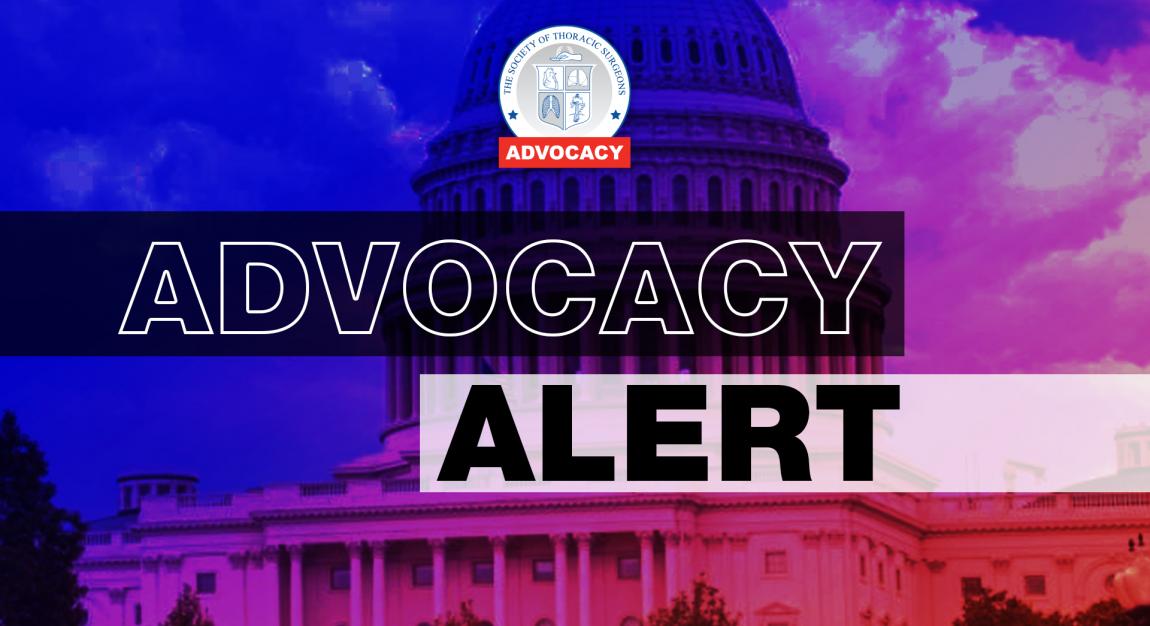The Centers for Medicare and Medicaid Services (CMS) released the calendar year (CY) 2024 Medicare Physician Fee Schedule Proposed Rule today. STS has compiled a summary of key provisions affecting cardiothoracic surgery in the rule.
Payment Cuts
CMS is proposing severe cuts to cardiothoracic surgery reimbursement. According to CMS, cardiothoracic surgeons will see a 3% cut in 2024. CMS estimates the CY 2024 conversion factor (CF) to be $32.7476. STS will continue to fight these cuts by lobbying Congress and CMS to provide an inflationary update to Medicare payments. While physicians have been subjected to across-the-board cuts for the last several years, Medicare continues to increase payments to hospitals, most recently proposing a 2.8% increase for inpatient hospital payments. Physicians deserve similar treatment.
Changes to physician reimbursement are often driven by Medicare’s budget neutrality requirement combined with no built-in mechanism for inflationary or other increases in resources for the Medicare fee schedule. Disruptions to reimbursement occur when there are changes to the value of specific services, which negatively affects how other services are reimbursed to maintain budget neutrality. An inflationary update would be the first step toward resolving the constant downward pressures created by this dynamic. Urge your lawmakers to support H.R. 2474, a bipartisan bill that would create an automatic inflation update for physician payments for the first time.
Global Surgical Codes
Once again, CMS has failed to apply the increased value of evaluation and management (E/M) codes services packaged in global surgical payments. STS has repeatedly recommended that CMS follow its own precedent and apply commensurate values for the office/outpatient E/Ms, inpatient E/Ms, and discharge day management visits packaged in the procedural global payments. This has been CMS’s policy every time E/M services have undergone a significant overhaul.
Previously Delayed Complexity Code
CMS is once again proposing to implement payment of the flawed G2211 add-on code for E/M office visits, which was previously delayed by Congress through legislation. These visits are defined as a “visit complexity inherent to evaluation and management associated with medical care services that serve as the continuing focal point for all needed health care services and/or with medical care services that are part of ongoing care related to a patient's single, serious condition or a complex condition.” STS successfully advocated for the congressional delay to this code in 2020 and continues to have significant concerns with its proposed implementation, which will impact the Physician Fee Schedule by redistributing billions of dollars between specialties. STS has and will continue to vehemently advocate against this proposal in its current flawed form.
Telehealth
CMS is retaining Category 3 codes on the Medicare telehealth list through CY 2024. STS is supportive of this proposal as data collected during COVID-19 demonstrates the positive impact telehealth has had on both patient clinical outcomes and patient experiences.
Additionally, CMS proposes to provide coverage and payment of certain audio-only telehealth services until December 31, 2024. STS supports the provision of continued payment for audio-only visits in appropriate circumstances to help address health disparities and individuals without strong internet access, although we do not believe audio-only is adequate for more complex visits.
Quality Payment Program
CMS will discontinue the Alternative Payment Model (APM) incentive payment as required under the Medicare Access and CHIP Reauthorization Act of 2015 (MACRA) in CY 2024. Instead, for performance year 2024, CMS is proposing APM participants receive a higher payment rate using a specific qualifying APM conversion factor. If CMS’s goal is to encourage providers to prioritize value-based care by participating in APMs instead of the traditional MIPS program, then CMS should work with Congress to reauthorize the 5% APM incentive payment. Additionally, the Centers for Medicare and Medicaid Innovation (CMMI) will need to test APMs that directly recognize the role of specialists.
CMS also proposes to expand the inventory of MIPS Value Pathways (MVPs), which is a new voluntary participation option aimed at providing clinicians with a more focused and cohesive MIPS experience. While MVPs offer a slight reduction in reporting burden, STS continues to believe that it fails to address fundamental flaws that have hampered meaningful participation by cardiac and thoracic surgeons.
